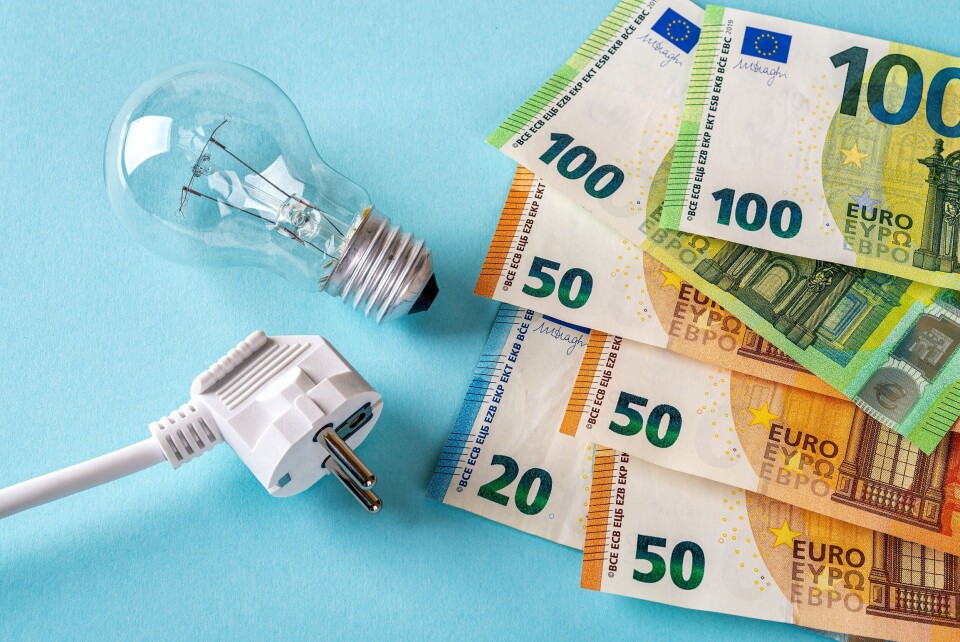-
Rail passenger in France fined €200 for playing music aloud on phone
On-the-spot fine was increased after passenger initially refused to pay
-
House cracking threat spreads to new areas in France, putting 12 million properties at risk
Map from environment ministry shows more than half of country at risk
-
Hospital fees set to increase in France: how will patients be affected?
Plans to save €400 million from social security spending targets several flat fees
Why some French electricity firms are urging customers to go to EDF
Clients told they should switch to benefit from the historic provider’s frozen regulated tariff. One was alerted that he would save €218 if he swapped

Smaller French electricity companies are struggling to keep their tariffs down as energy prices continue to rise on a global scale and are encouraging customers to switch to the regulated rates offered by EDF.
The French government ruled that regulated electricity prices (thetarif réglementé de l’électricité) would be frozen at a 4% rise in autumn 2021. This measure will last until the end of 2022.
Read more: France extends energy price cap measure to the end of 2022
Regulated gas prices were also frozen in place, without which they would be 105% higher now than they were in October 2021, energy regulator the Commission de régulation de l’énergie (CRE) has said.
France’s historic electricity supplier, EDF, sticks to this regulated rate decided by state powers, and alternative suppliers can either offer prices which are different to but indexed on this tariff or prices which fluctuate with the global market.
With market electricity prices increasing, largely as a result of the war in Ukraine, several smaller suppliers, including Planète OUI and Bulb Energy, have gone bust over the past year, often because they did not stock up their reserves in advance and so were forced to buy at a very high price.
Planète OUI was later acquired by Mint Energie, which recently sent an email to its 120,000 new customers – who were supposed to be on the tarif réglementé – telling them that their bills would be going up because they were no longer linked to the regulated tariff.
Read more: Bills skyrocket for customers of alternative French energy supplier
However, Mint Energie has also urged customers to “go to EDF” to benefit from the historic supplier’s capped electricity prices.
One Mint customer, Romain, was told that he would save €218 if he swapped to EDF, MSN news reports.
Ohm Energies has also alerted its customers to a new tariff rise, and reminded them that they can “cancel their contract without penalties at any time over the next three months”.
Spanish supplier Iberdrola has advised the 2% of its customers – 10,000 people – whose contracts are coming to an end to look for another supplier as it is having to increase its rates and will not be able to maintain the tariff it initially offered.
If the provider had renewed these contracts “we would have been obliged to pass the increase in the price of electricity, which is astronomical, on to our customers”.
Read more: Spanish electricity provider Iberdrola fails to renew French contracts
Cheaper for electricity firms to buy EDF supplies
The surging price of electricity has made it difficult for alternative suppliers to attract customers to their market rate offers, which are increasing with global rates.
In the first quarter of 2022, these tariffs only gained 163,000 new customers, a figure down 137% on the third quarter of 2021, according to the CRE.
To help these suppliers keep their prices down, the government decided in February to increase the Arenh (accès régulé à l’électricité nucléaire historique) threshold by 20%.
This mechanism normally enables firms to buy up to 100TWh at €42 per MWh from EDF, and then any supply beyond this threshold must be bought on the open market.
This year, electricity providers have been able to buy 120TWh from EDF, saving them for a bit longer from having to turn to market prices of up to €700 per MWh.
However, even with this support in place, suppliers may choose that it makes more sense to let their customers go at the end of their contract before even checking if they would accept a higher tariff.
This is because releasing customers helps providers to benefit from Arenh to the maximum. The share of Arenh electricity allocated to each supplier is calculated at low-demand times such as the weekend, public holidays and over the summer.
So, to obtain as much cheap electricity as possible, these firms should aim for a high number of customers in July and August, but then can begin to let them go at the end of the summer.
This tactic will enable them to share the Arenh electricity out between a larger proportion of their total customers before turning to the open market, or even end up with a surplus that they can sell on at higher prices.
The price caps on regulated gas and electricity prices will come to an end on January 1, 2023. They will be replaced by more targeted aids focused on lower-income households, the government has said.
Related articles
Bulb Energy UK goes bust: French clients advised to find new supplier
Spanish electricity provider Iberdrola fails to renew French contracts
EDF nationalisation is end of bumpy ride for French investors
























